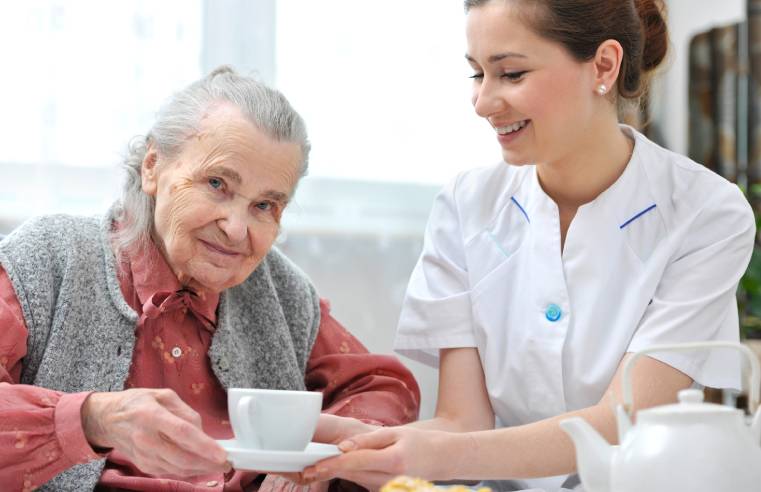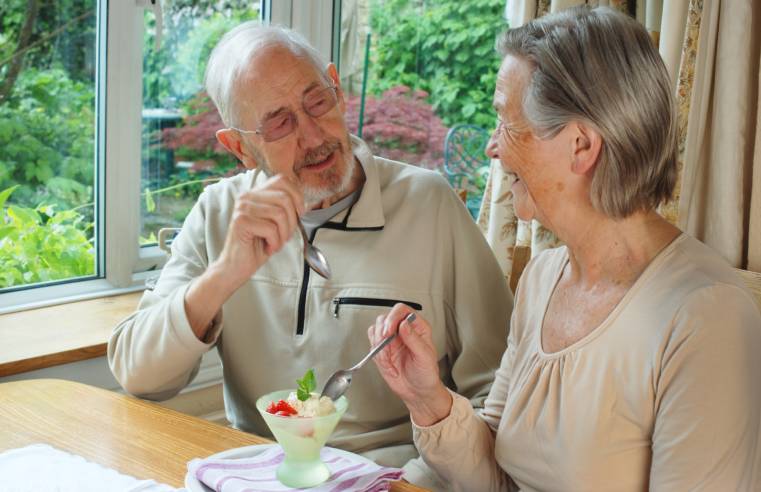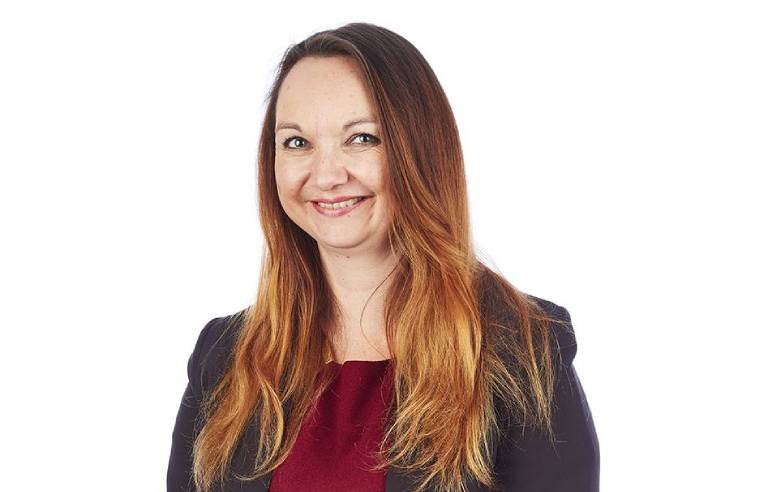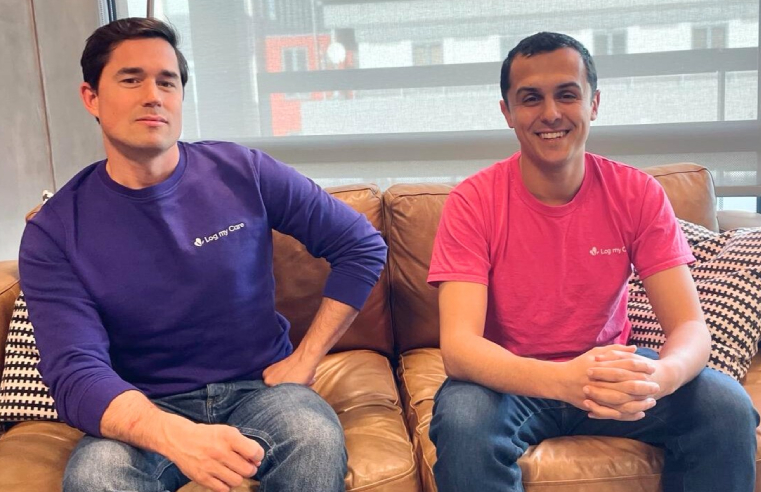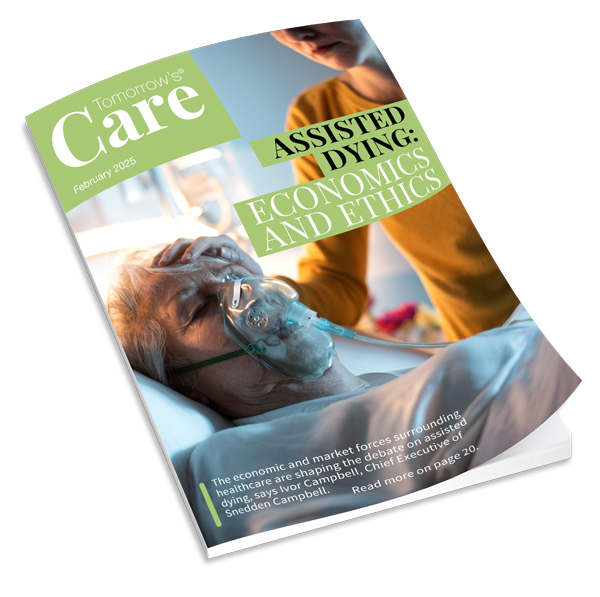With the care home sector at the centre of the COVID-19 crisis, a Hertfordshire facility shares how they have dealt with this invisible threat.
Sunrise of Elstree was just one of the many care homes confronted with the challenge of caring for the wellbeing of residents with COVID-19 while protecting others from contracting it. Sarah*, an 83-year-old resident who lives with dementia at Sunrise of Elstree, became one of the COVID-19 statistics after visiting hospital to get treatment for an infection.
Before her visit to hospital, Sarah’s condition was serious as she was refusing to eat, drink and take her antibiotics. Staff at Sunrise of Elstree knew that, without treatment, she had very little chance of recovering from her infection without needing additional long-term care.
Paramedics took Sarah to hospital with mixed feelings among staff members who were all too aware of the dangers the elderly faced from visiting clinical environments.
While in hospital, Sarah tested positive for COVID-19. The news sent shockwaves throughout the community but, thankfully, no-one within the Sunrise of Elstree care home was showing symptoms, indicating that Sarah had contracted the virus while in hospital.
After receiving the news, one carer from Sunrise of Elstree, said: “When I heard that Sarah had tested positive for COVID-19, I was honestly scared. I was thinking, this may be the time to leave my job. My husband is diabetic. I couldn’t think straight. I was scared for my husband and I was scared for me”.
The care home staff reached out for support from the Senior Leadership Team at Sunrise Senior Living UK. Together they decided that the care home could cater to Sarah’s needs and have her return to the home.
However, in order to reduce the risk of potentially spreading the virus, Sarah was required to undertake a period of isolation for 14 days.
Staff were seriously concerned about the impact that this period of isolation could have on Sarah’s emotional and physical wellbeing. As a physically active resident, the team were worried that being confined to a small single room may cause her significant distress. Concerns were further heightened as Sarah’s dementia meant that she would not be able to understand why she would be required to stay in isolation.
After a discussion with the Care and Quality team, the decision was made for Sarah to receive one-to-one care in order to protect all staff and residents.
Team members were very supportive of the decision to implement one-to-one care for Sarah. Speaking of the decision, a staff spokesperson said: “One-to-one care was the appropriate way to look after Sarah as it provided a shield for us. Senior carers were also the first ones to care for Sarah which helped set an example. The rota that was set up was fair and everyone did their share. We all pulled together.”
A temporary ‘isolation suite’ was set up for Sarah so that team members could effectively provide the one-to-one care she required. The suite contained a lounge area as well as an en-suite bathroom to make the experience as comfortable as possible for her. The suite was also set up to be similar to her own room, with a bed, bedside table, TV and an armchair facing towards the window so that she could see and hear the birds. This also meant that she got plenty of daylight, which helped with her health and her sleep. There was also a small sofa and a dining table with two chairs for Sarah to do her favourite activities, such as jigsaw puzzles, reading books, colouring in and crosswords.
Importantly, steps were taken to make the space safe for staff members caring for Sarah. Clinically safe systems were arranged for staff to put on and dispose of PPE, along with a showering facility for staff to use after their shifts. A telephone was also available for carers to phone the other team members if they required anything to be brought to the room.
With support from the Sunrise Care and Quality team, a bespoke care programme called ‘My Isolation Plan’ was implemented for Sarah. It included an activities plan to help prompt and support carers with how to engage and assist Sarah throughout the day and night. Together with her carers, Sarah’s Isolation Plan meant that she participated in meaningful activities that were tailored to her interests and abilities.
After six days in hospital, Sarah returned to Sunrise of Elstree. She was met at the front door of the home by carers wearing full PPE, including masks and face shields.
Sarah then settled into her new isolation suite. Together with her carer, she participated in meaningful activities. And, as the days passed, Sarah became increasingly creative. She painted and coloured in rainbows. These paintings were then placed on the window at the entrance to Sarah’s room as carers thought this was a more dignified way to identify residents who were self-isolating.
Each day Sarah made a new friend, someone who listened to her, comforted her and provided validation for the daily worries that she experienced. To her and the Sunrise of Elstree staff’s credit, Sarah remained happy and content throughout her time in isolation.
Speaking of Sarah’s time in isolation, staff at Sunrise of Elstree said: “Sarah really enjoyed the view in her bedroom, she was able to watch the birds which she loves to do. She was very thankful while in isolation, especially when she had her nails cut and painted for her!
“We also had a lot of support from the wider team at Sunrise of Elstree which really kept us going. Team members and managers would knock on the window and put their thumbs up, and many others would phone us to make sure we were ok.”
Sarah successfully completed her isolation period after 14 days and returned to community living.
When Sarah came out of her bedroom door, she was greeted with cheers from the care team. Carers clapped for her and took pictures of Sarah waving and beaming with happiness. Sarah was then assisted into the communal dining room for her breakfast. She sat at a table with other residents and began to engage in conversations whilst eating and drinking, and later went out into the gardens and joined in with the daily activities.
*The name of the resident has been changed for the purposes of this article.







